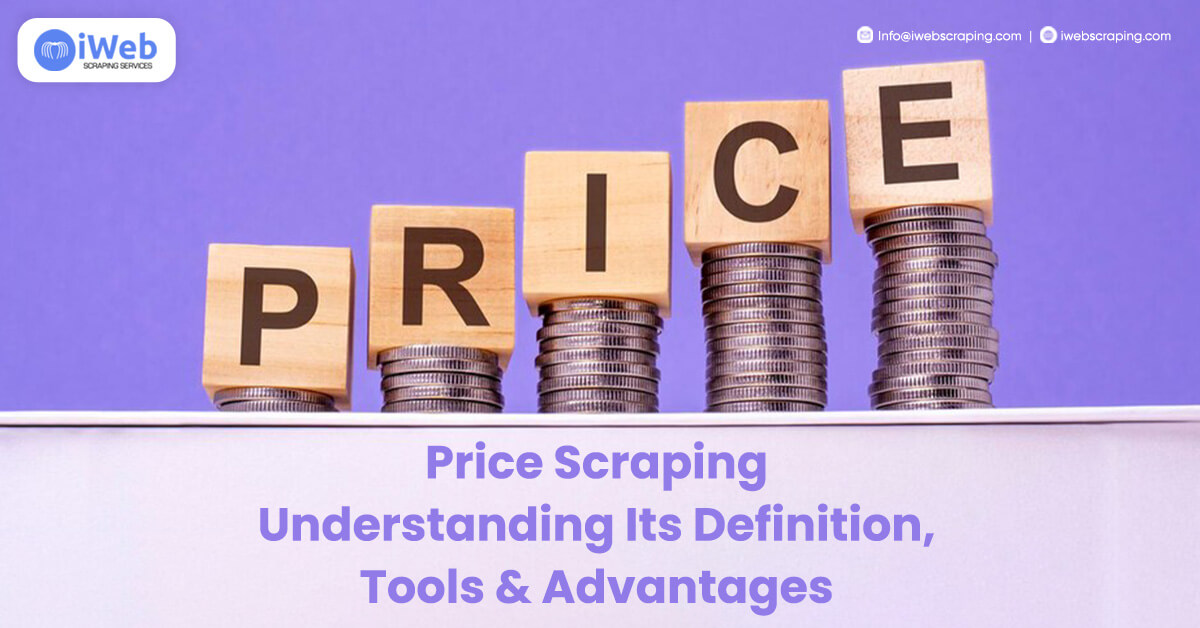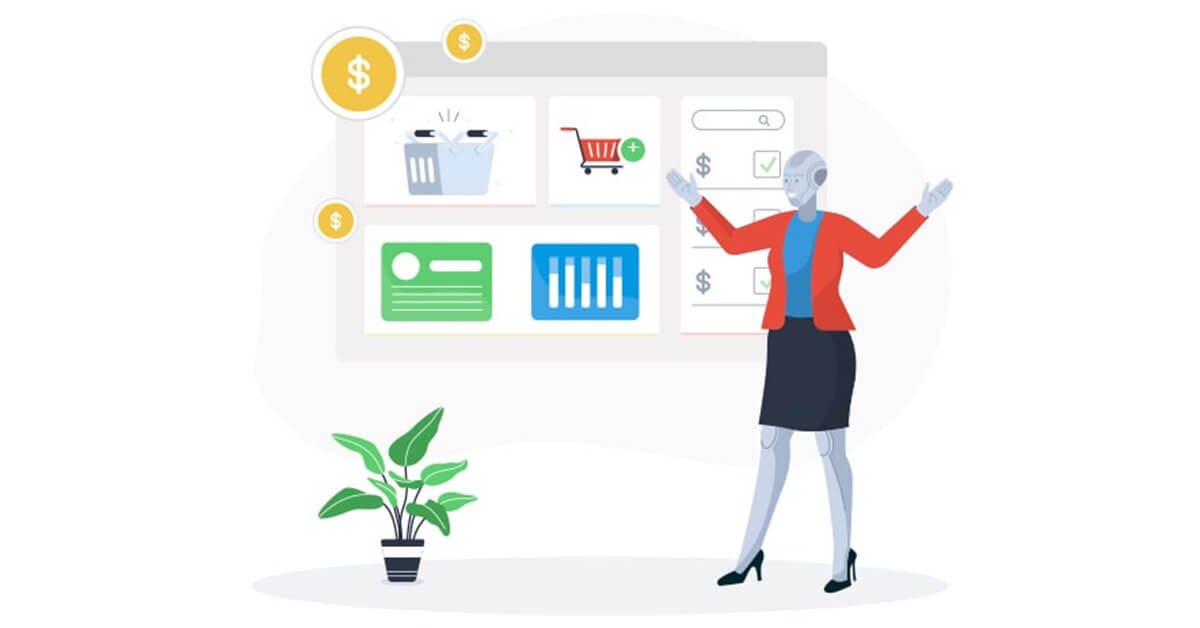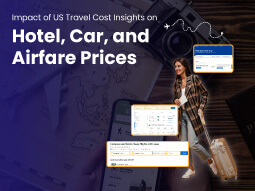Price Scraping: Understanding Its Definition, Tools & Advantages

In today’s super competitive online shopping world, businesses must stay ahead of the game to succeed. One way they do this is by using a technique called price scraping.
It is a way for companies to gather and study price information from different websites. This helps them make smart decisions and determine the best product prices.
In this article, we will explore the basics of price scraping, talk about how it can be helpful in real life, and give you some tips on how businesses can use it to stay ahead in the constantly changing online market.
What Is Price Scraping?
Price scraping is a process that involves collecting and organizing data from different sources about the prices of products. The collected data is then analyzed to find the best customer price.
One of the most popular uses for price scraping is for comparison sites. These sites can collect data from all over the web and then present it in a format that allows users to compare products and services easily.
Some also use price scraping to compete with other companies in their market. This can be done by creating an algorithm that searches for a certain product or service and compares it with similar offerings from other businesses.
Why Is Price Scraping Important?
Imagine you are planning to buy something online, like a new phone or a fancy gadget.
Could you quickly determine which website or online store offers the best prices for that item? That is where price scraping comes into play.
Price scraping is the process of automatically collecting and comparing prices from different websites or online stores. It's like having a smart tool that searches the internet, looking for the best deals and bringing the information back to you.
Now, you might wonder why is this important? Well, here are a few reasons:
1. Saving Money
The primary benefit of price scraping is that it helps you save money. By gathering information about prices from various sources, you can quickly identify the most affordable option for the product you want to buy. This way, you can make an informed decision and avoid paying more than necessary.
2. Time-saving
Price scraping saves you time and effort. Instead of manually searching multiple websites to compare prices, the scraping tool works for you. It collects all the relevant data and presents it in an organized way, making it much easier and quicker for you to find the best deal.
3. Competitor Analysis
Price scraping is not only beneficial for consumers but also for businesses. Companies can use price scraping to monitor their competitors' pricing strategies. Businesses can adjust their pricing, stay competitive, and attract more customers by gathering data on competitor prices.
4. Price Monitoring
Price scraping is helpful for more than just one-time purchases. It can also help you keep an eye on price fluctuations over time. By regularly scraping prices, you can track changes in the market and take advantage of discounts or special offers when they arise.
5. Market Research
Price scraping provides valuable insights into market trends and consumer behavior.
Businesses can better understand pricing dynamics, demand patterns, and customer preferences by analyzing price data from different sources. This information can then be used to make business decisions and develop effective marketing strategies.
So, price scraping is necessary because it helps you save money, time, and effort.
Moreover, it enables businesses to stay competitive and make informed decisions based on market trends. It is like having a personal shopping assistant that works tirelessly to find you the best deals!
Is Price Scraping Legal?
Now, regarding the legality of price scraping, things can get tricky. In general, scraping publicly available information from websites is not illegal. However, there are some essential factors that you have to consider.
Firstly, websites can protect themselves by implementing terms of services or other legal agreements that prohibit scraping. If you scrape a website with clear terms against it, you could violate those terms and face legal consequences.
Secondly, scraping can be seen as a breach of the website's intellectual property rights or copyright. If the data you are scraping is considered protected under copyright laws, scraping it without permission could be deemed illegal.
To sum it up, the legality of price scraping depends on various factors, including the website’s terms of service, intellectual property rights, and the laws of your country or region. It is always a good idea to consult with a legal professional or seek advice before engaging in scraping activities to ensure you are on the right side of the law.
Various Price Scraping Tools

Price scraping tools are software programs that help gather and compare prices of products or services from different websites. They are helpful for online shoppers, businesses, and researchers who want to track and analyze pricing information.
Here is a list of price scraping tools that can help you track and analyze prices from various websites:
1. Octoparse:
It is a user-friendly web scraping tool that allows you to extract data from websites, including prices. It provides a visual interface that lets you select the data you want to scrape and offers features like scheduling and automatic extraction.
2. Import.io:
A powerful data extraction platform that enables you to scrape prices and other relevant data from multiple websites. If it offers both a point-and-click interface for beginners and an API for more advanced users.
3. ParseHub:
It is another popular web scraping tool that scrapes website prices. It provides a desktop application that allows you to build custom scraping projects and extract data in various formats.
4. WebHarvy:
It is a visual web scraper that simplifies the process of extracting prices and other data from websites. It offers a point-and-click interface and supports scraping from JavaScript-heavy websites as well.
5. Scrapy:
It is an open-source web scraping framework widely used to extract website data. It requires some coding knowledge but provides flexibility and scalability for price-scraping tasks.
6. BeautifulSoup:
It is a Python library that helps parse HTML and XML documents. It can be combined with other Python libraries to scrape prices from websites. It requires some programming skills to use effectively.
7. Mozenda:
It is a cloud-based web scraping tool offering various features, including price scraping. It allows you to create scraping agents and provides scheduling options for regular data extraction.
8. Apify:
This platform allows you to automate web scraping tasks, including price scraping. It offers both a visual editor and a JavaScript-based scripting interface for more complex scraping scenarios.
The Benefits of Price Scraping

Now, what are the benefits of price scraping? Well, let me break it down for you.
1. Helps you find the best deals
Price scraping allows you to compare prices across different websites and platforms. It is like having a personal shopper who finds the lowest prices for you. You can easily find the best deals and save money on your purchases.
2. Saves you time and effort
Instead of manually visiting multiple websites and comparing prices, price scraping automates the process for you. It collects price data from various sources and presents it organizationally. You can quickly see which store offers the best price without spending hours searching online.
3. Enables informed decision-making
Collecting price data provides you with valuable information about the market. You can analyze trends and price fluctuations over time, helping you make better purchasing decisions. For example, you can identify the best time to buy a particular product when prices are at their lowest.
4. Supports research and market analysis
Price scraping is beneficial for individual consumers and valuable for businesses and researchers. By scraping price data, companies can gain insights into consumer behavior, competitor pricing strategies, and market trends. This information can be used to develop better pricing strategies and make informed business decisions.
5. Enhances transparency and trust
Price scraping contributes to transparency in the market. Customers' access to accurate price information builds trust between buyers and sellers. Consumers can compare prices across different platforms and ensure they get a fair deal. It also holds sellers accountable for their pricing practices.
Conclusion
In conclusion, price scraping is a fancy term for a process that involves gathering information about product prices from various websites. It is like having a virtual shopping assistant that compares prices for you. With the help of specialized tools, businesses and consumers can easily keep track of prices across different platforms and make informed decisions.
The advantages of price scraping are clear: it saves time, money, and effort. You can find the best deal, uncover discounts, and ensure you are not overpaying for a product. So, next time you're looking to buy something, consider using price-scraping tools to get the best bang for your buck!




